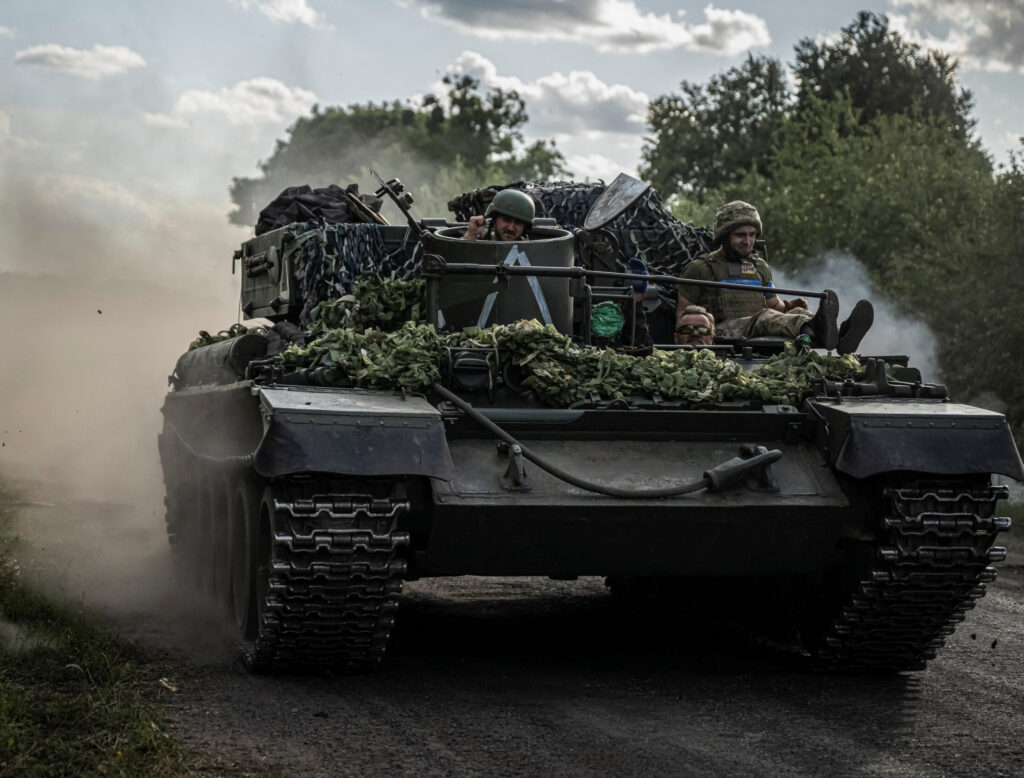Ukraine’s invasion of Russia is now in its second week and the sense of shock is still tangible. The Ukrainian military was able to achieve almost total surprise when it crossed the border into Russia’s Kursk Oblast on August 6. While the ultimate goals of the operation remain subject to much debate, Ukraine’s success in catching the Russians completely off-guard is a considerable accomplishment in its own right.
The Ukrainian military’s ability to maintain a veil of secrecy around preparations for the current operation is all the more remarkable given the evidence from the first two-and-a-half years of Russia’s invasion. The war in Ukraine has been marked by the growing importance of drone and electromagnetic surveillance, creating what most analysts agree is a remarkably transparent battlefield. This is making it more and more difficult for either army to benefit from the element of surprise.
Given the increased visibility on both sides of the front lines, how did Ukraine manage to spring such a surprise? At this stage there is very little detailed information available about Ukraine’s preparations, but initial reports indicate that unprecedented levels of operational silence and the innovative deployment of Ukraine’s electronic warfare capabilities played important roles.
Ukraine’s political leaders have been unusually tight-lipped about the entire offensive, providing no hint in advance and saying very little during the first week of the campaign. This is in stark contrast to the approach adopted last year, when the country’s coming summer offensive was widely referenced by officials and previewed in the media. Ukraine’s efforts to enforce operational silence appear to have also extended to the military. According to The New York Times, even senior Ukrainian commanders only learned of the plan to invade Russia at the last moment.
Ukraine’s Kursk offensive appears to have been a major surprise for Ukraine’s Western partners. The Financial Times has reported that neither the US nor Germany were informed in advance of the planned Ukrainian operation. Given the West’s record of seeking to avoid any actions that might provoke Putin, it is certainly not difficult to understand why Kyiv might have chosen not to signal its intentions.
Read more coverage of the Kursk offensive
This approach seems to have worked. In recent days, the US, Germany, and the EU have all indicated their support for the Ukrainian operation. If Ukraine did indeed proceed without receiving a prior green light from the country’s partners, planners in Kyiv were likely counting on the reluctance of Western leaders to scupper Ukrainian offensive actions at a time when Russia is destroying entire towns and villages as it continues to slowly but steadily advance in eastern Ukraine.
Ukraine’s expanding electronic warfare capabilities are believed to have been instrumental in safeguarding the element of surprise during preparations for the current campaign. The Ukrainian military appears to have succeeded in suppressing Russian surveillance and communications systems across the initial invasion zone via the targeted application of electronic warfare tools. This made it possible to prevent Russian forces from correctly identifying Ukraine’s military build-up or anticipating the coming attack until it was too late.
Eurasia Center events

It is also likely that Ukraine benefited from Russia’s own complacency and overconfidence. Despite suffering a series of defeats in Ukraine since 2022, the Kremlin remains almost pathologically dismissive of Ukrainian capabilities and does not appear to have seriously entertained the possibility of a large-scale Ukrainian invasion of the Russian Federation. The modest defenses established throughout the border zone confirm that Moscow anticipated minor border raids but had no plans to repel a major Ukrainian incursion.
Russia’s sense of confidence doubtless owed much to Western restrictions imposed on Ukraine since the start of the war that have prohibited the use of Western weapons inside Russia. These restrictions were partially relaxed in May 2024 following Russia’s own cross-border offensive into Ukraine’s Kharkiv Oblast, but the Kremlin clearly did not believe Kyiv would be bold enough to use this as the basis for offensive operations inside Russia. Vladimir Putin is now paying a steep price for underestimating his opponent.
It remains far too early to assess the impact of Ukraine’s surprise summer offensive. One of the most interesting questions will be whether Ukraine can force the Kremlin to divert military units from the fighting in eastern Ukraine in order to defend Russia itself. Much will depend on the amount of Russian land Ukraine is able to seize and hold. Putin must also decide whether his military should focus on merely stopping Ukraine’s advance or liberating occupied Russian territory.
Ukraine’s Kursk offensive has succeeded in demonstrating that surprise is still possible on the modern battlefield. This is a significant achievement that underlines the skill and competence of the Ukrainian military. The Ukrainian invasion has also confirmed once again that Putin’s talk of Russian red lines and his frequent threats of nuclear escalation are a bluff designed to intimidate the West. Taken together, these factors should be enough to convince Kyiv’s partners that now is the time to increase military support and provide Ukraine with the tools for victory.
Mykola Bielieskov is a research fellow at the National Institute for Strategic Studies and a senior analyst at Ukrainian NGO “Come Back Alive.” The views expressed in this article are the author’s personal position and do not reflect the opinions or views of NISS or Come Back Alive.
The views expressed in UkraineAlert are solely those of the authors and do not necessarily reflect the views of the , its staff, or its supporters.

The Eurasia Center’s mission is to enhance transatlantic cooperation in promoting stability, democratic values and prosperity in Eurasia, from Eastern Europe and Turkey in the West to the Caucasus, Russia and Central Asia in the East.
Image: Ukrainian servicemen ride a military vehicle, amid Russia’s attack on Ukraine, near the Russian border in Sumy region, Ukraine. August 11, 2024. (REUTERS/Viacheslav Ratynskyi)









